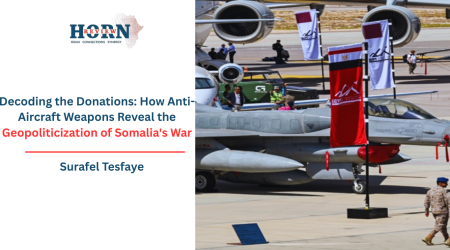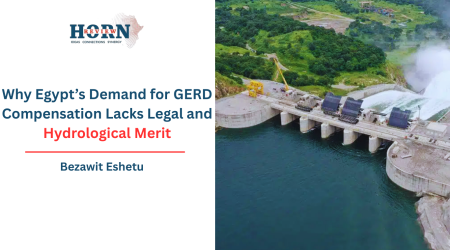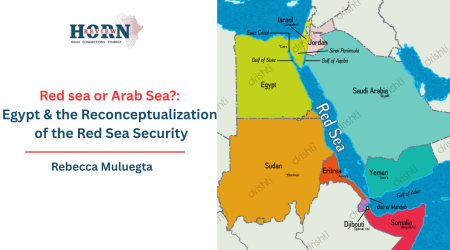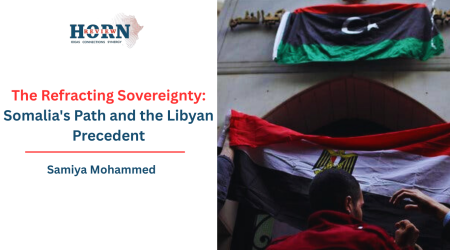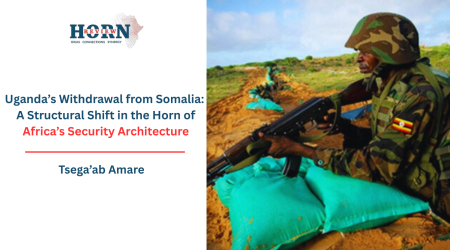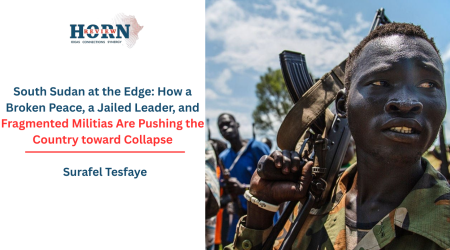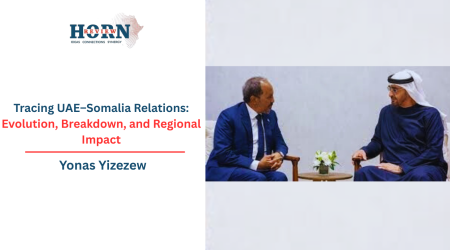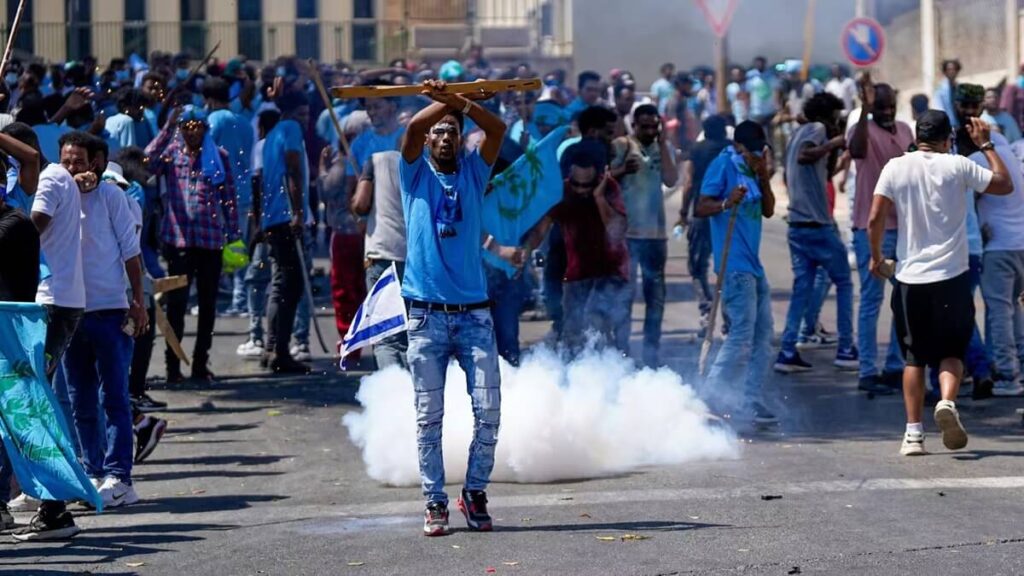
30
Jul
Unsettling the Status Quo: The Reconfiguration of Eritrean Opposition
Since its formal cessation in 1993, Eritrea has remained under the centralized rule of the People’s Front for Democracy and Justice (PFDJ), the successor to the Eritrean People’s Liberation Front (EPLF). Characterized by a closed political system, pervasive militarization, and the systematic suppression of dissent, Eritrea has long resisted pressures for change. However, opposition to the PFDJ is not a post-cessation phenomenon; rather, it is rooted in the internal fissures that marked the era itself. As Eritrea approaches an uncertain political age, especially in light of questions surrounding President Isaias Afwerki’s succession, the fragmented but increasingly active opposition landscape has regained relevance.
Among the more prominent actors in this evolving configuration are the Red Sea Afar Democratic Organization (RSADO) and the Eritrean Blue Revolution Front. While these groups do not encompass the entirety of Eritrean opposition movements, they are particularly notable for their sustained activity, geographical proximity, and operational presence in Ethiopia. Both have gained momentum in recent months, capitalizing on regional dynamics and emerging political openings.
The genesis of Eritrean political dissent however, can be traced to rivalries predating 1993, particularly between the EPLF and the Eritrean Liberation Front (ELF). Following the EPLF’s military consolidation and transformation into the PFDJ, a one-party system was formalized, effectively extinguishing avenues for political plurality. In the decades since, a diverse array of resistance movements had emerged, including Islamist factions, nationalist reformists, and ethnic-based organizations, each articulating its grievances in relation to the PFDJ’s highly centralized governance.
RSADO has increasingly distinguished itself within this broader opposition mosaic. Claiming to represent the interests of the Red Sea Afar people, an ethnic community straddling southern Eritrea and Ethiopia’s Afar Region, RSADO frames its political struggle in terms of both historic marginalization and contemporary repression. The group alleges systematic exclusion from political decision-making, economic neglect, and targeted abuses perpetrated by the Eritrean state. At a recent political conference in Semera, RSADO reaffirmed its commitment to justice, political transformation, and the right to self-determination. Part of its narrative is the assertion that the Afar have been deliberately isolated, culturally, geographically, and economically, including through the militarization of border zones and the restriction of cross-border mobility.
This ethnic framing carries strategic undertones. RSADO argues that the Eritrean state views the Afar not merely as a minority group but as a transnational constituency whose geographic cohesion and political awareness present a latent threat to the status quo. With its territorial reach along the Red Sea and kinship ties across borders, the Afar population occupies a position of both symbolic and strategic significance, particularly in relation to maritime access and coastal security.
In contrast to RSADO’s ethnically rooted and occasionally militarized platform, the Eritrean Blue Revolution Front represents a diaspora-based movement oriented around political activism, digital mobilization, and ideological messaging. It has recently expanded its outreach, emphasizing resistance inside Eritrea and amplifying calls for democratic reform through various means. While the organizational models and methods of these two groups diverge, both are engaged in efforts to challenge the prevailing political order, each operating from Ethiopian soil and contributing to the incremental reconfiguration of Eritrea’s oppositional landscape.
The central question, however, remains whether such movements possess the capacity to exert meaningful influence over Eritrea’s entrenched political structure. The PFDJ’s longevity rests on a deeply embedded security apparatus, centralized command structures, and decades of political isolationism. Opposition actors which are mostly dispersed, under-resourced, and often fragmented, face formidable structural and logistical barriers. Yet, the potential departure of President Isaias Afwerki introduces an element of strategic uncertainty.
As the architect of Eritrea’s centralized governance model, his exit, whether voluntary or involuntary, could create power vacuums and recalibrate elite alignments. In such a scenario, groups like RSADO and the Blue Revolution Front could emerge as transitional stakeholders, particularly if internal fractures or public unrest catalyze a political opening.
RSADO’s positioning within Ethiopia confers both strategic advantages and complex implications. The Horn of Africa has long been marked by the practice of hosting armed opposition groups as instruments of regional leverage. While Ethiopia’s post-2018 foreign policy, under Prime Minister Abiy Ahmed’s “Horn First” doctrine, initially emphasized non-interventionism and regional stability, shifting dynamics, especially Eritrea’s controversial role in Ethiopia’s internal conflicts, have tested this principle. Although Ethiopia has not explicitly endorsed RSADO, its tolerance of the group’s activities on Ethiopian soil reflects a recalibrated pragmatism, shaped by deteriorating bilateral relations and the evolving security considerations.
This pragmatic posture does not constitute overt proxy engagement. Nonetheless, the functional latitude RSADO enjoys, particularly in the Afar Region, suggests a convergence of interests. From Ethiopia’s standpoint, RSADO represents a potential buffer against Eritrean hostility along the eastern frontier, while from RSADO’s perspective, Ethiopian territory offers sanctuary, logistical space, and implicit legitimacy.
Beneath these dynamics lies a deeper ideological challenge. RSADO’s rhetoric occasionally gestures toward an irredentist vision, invoking the unity of Red Sea Afar populations across national boundaries. Such discourse, while framed in terms of ethnic solidarity and historical justice, poses direct questions about the territorial integrity of the Eritrean state, especially in strategic zones such as Assab and the Dahlak Archipelago. These implications are not lost on regional actors, particularly given the maritime significance of Eritrea’s coastline and its importance within Red Sea security frameworks.
The evolving Ethiopia–RSADO relationship is therefore best understood as a fluid interplay of mutual calculations rather than a formal alliance. Ethiopia has not instrumentalized RSADO in any explicit way, but the group’s presence on its soil constitutes a latent pressure point, one that could be activated under shifting regional scenarios. This reality is especially salient given the volatility of inter-state relations across the Horn and the enduring opacity of Eritrea’s internal decision-making structures.
Although the PFDJ retains firm control over Eritrean state institutions, the cumulative weight of ethnic discontent, regional realignments, and growing political fatigue is gradually reshaping the opposition terrain. RSADO, despite its limitations, represents one of the more coherent and strategically positioned entities within this fragmented sphere. The Blue Revolution Front, with its media-savvy activism and diaspora networks, complements this by broadening the political discourse beyond ethnic or militarized paradigms.
As Eritrea confronts the dual pressures of internal ossification and external scrutiny, its long-standing model of insulated governance may prove increasingly untenable. The persistence of exile-based opposition, the recalibration of Ethiopia’s regional strategy, and the subtle shifts within Eritrean society all point toward a future in flux. Whether that future will be shaped by dialogue, disruption, or transformation remains to be seen, but the cracks in the edifice are no longer invisible.
By Mahder Nesibu, Researcher, Horn Review


